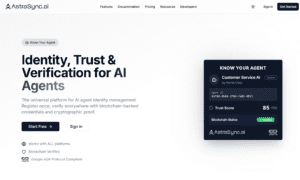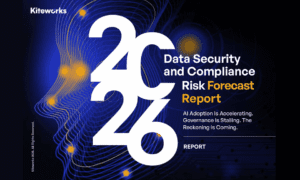At the heart of Jeeva AI’s cutting-edge agentic AI capabilities is Anubhav Sharma, the driving force behind the company’s innovations in autonomous sales workflows. In this candid conversation, Anubhav opens up about what fuels his work, how Jeeva’s Agentic AI is transforming sales, and where he sees the technology heading next.
Setting the Stage
Before diving into AI, Anubhav spent years studying computational models that mimic cognitive processes—fascinated by how reasoning and problem-solving could be recreated in silicon. That curiosity eventually led him to Jeeva AI, where his team pioneered the autonomous sales agent—a digital teammate that doesn’t just follow scripts but plans, adjusts, and executes complex sales outreach strategies.
Q: Anubhav, let’s start from the beginning. What first sparked your interest in AI—specifically in building agentic systems?
A- “I’ve always been intrigued by intelligence that adapts. In college, I was obsessed with the question: Can machines think beyond their code? Early AI was mostly about predictions—like whether a lead will convert or not. Useful, but passive.
What pulled me into agentic AI was the idea of creating decision-making entities. I wanted to build AI that doesn’t just answer questions but asks the right ones, prioritizes, and figures out the next step even when the path isn’t obvious. That’s what brought me to Jeeva AI—we shared the vision of moving past narrow automation into true autonomy.”
Q: The term “agentic AI” is becoming popular, but it’s still new to many. How would you describe it in the simplest terms?
A- “Think of the difference between a GPS navigation app and a self-driving car. A GPS tells you the directions—you still do the driving. A self-driving car handles the driving, responding to traffic and making decisions in real time.
Most business AI today is like GPS—it tells you what to do or automates small tasks. Agentic AI is like the self-driving car. It takes the goal you’ve set—like increasing sales conversions or booking meetings—and decides the how on its own, adapting as it goes.
At Jeeva, our AI sales agents can analyze historical data, draft outreach sequences, adjust tone based on prospect behavior, and even reschedule campaigns if they sense it’ll improve results.”
Q: How did Jeeva AI’s approach to agentic workflows differ from what other companies were doing?
A- “Many companies were—and still are—focused on assistive AI. They’re great at surfacing recommendations, but they constantly need a human prompt.
We wanted to leapfrog that model. Our vision was: Give the AI an outcome and let it figure out the path. So if a sales manager sets a goal—say, ‘generate 200 qualified leads this month’—our agent doesn’t just fire off emails. It decides which leads to prioritize, which channels to use, how to personalize messaging, when to follow up, and even how to reallocate efforts mid-campaign if something isn’t working.
This shift from task-level automation to goal-oriented autonomy is what makes Jeeva’s approach unique.”
Q: That sounds like a major leap. What was the biggest challenge in achieving this autonomy?
A- Autonomy is powerful but also sensitive. Businesses want AI to be proactive, but they don’t want it to be a black box. The hardest part was building trust.
We had to ensure our agents could explain their reasoning. If the AI pauses a campaign or prioritizes one account over another, the sales leader should understand why. We invested heavily in reasoning models and real-time explainability layers so that the agent could narrate its own thought process.
Another challenge was striking the right ‘autonomy boundary’—where the AI takes charge and where a human can intervene. We built mechanisms that let humans set guardrails while still allowing the AI enough freedom to be effective.”
Q: Can you recall a specific breakthrough moment that validated your vision for
A- “There was this enterprise client with a complex, multi-layered sales funnel. They struggled because prospects were dropping off mid-funnel due to delayed follow-ups.
We activated our agent, and within days, it autonomously re-sequenced the outreach, optimized follow-up timing, and reduced the drop-off rate by 38%—without a single human stepping in.
That was a turning point. We realized we weren’t just building a smart assistant; we had built a co-worker capable of independent problem-solving.”
Q: Behind every innovation lies a philosophy. What’s yours when it comes to designing intelligent agents?
A- “Our philosophy is simple: AI should think in terms of goals, not tasks. Humans excel at big-picture thinking—strategy, creativity, empathy. Machines excel at execution—following logic at scale without fatigue.
By giving AI a goal, not just commands, we let it handle complexity in a way that complements human strengths rather than competing with them.”
Q: The buzzword today is “Human + AI.” How does Jeeva embody that idea?
A- “I see AI as an amplifier for human talent. In sales, people often burn out doing repetitive outreach—drafting messages, following up, updating CRMs.
By letting agentic AI take over those operational burdens, sales reps can focus on relationship-building, creative strategy, and closing deals—the work that actually needs a human touch.
The ‘Human + AI’ model isn’t just more efficient; it’s more humane.”
Q: Adoption of new technology often comes with resistance. How do you convince businesses to embrace agentic AI?
A- “We encourage them to start with a pilot goal, not a pilot tool. Instead of saying, ‘Let’s try this AI platform,’ we say, ‘Let’s aim to improve your lead-to-meeting conversion rate by 25%.’
When businesses see that an AI agent can achieve tangible outcomes autonomously—and explain how it did so—the skepticism fades. Success stories speak louder than any sales pitch.”
Q: What do you think will define the next wave of innovation in agentic AI?
A- “Right now, most agentic systems are domain-specific—sales, support, marketing. The future is collaborative multi-agent ecosystems. Imagine your sales AI coordinating with your marketing AI, your support AI, and your ops AI—making holistic decisions together.
Another frontier is ethical reasoning—teaching agents to weigh not just business objectives but compliance, fairness, and brand values in their decision-making.”
Q: On a personal note, what drives you as a leader in this space?
A- “I’m driven by curiosity and impact. Curiosity about how far we can push machine reasoning—and impact in terms of freeing humans from the grind of repetitive work.
When I hear from a sales rep who says, ‘I finally get to focus on building relationships instead of updating spreadsheets all day,’ that’s incredibly rewarding.”
Q: Finally, if you had one piece of advice for companies exploring agentic AI, what would it be?
A- “Don’t adopt AI because it’s trendy—adopt it because you have a clear outcome in mind. Start small but think long-term. Build a culture where humans and AI collaborate, and choose partners who can support explainability, not just automation.
Agentic AI isn’t about replacing people, it’s about empowering them.”
The Road Ahead
Anubhav Sharma’s work at Jeeva AI underscores a fundamental shift in enterprise AI: the transition from static automation to dynamic autonomy. As businesses face mounting pressure to scale revenue without bloating headcount, Jeeva’s agentic AI offers not just a tool, but a strategic ally.
His vision paints a future where companies won’t debate whether to use AI—they’ll debate how to best partner with it. And in that future, human ingenuity and machine intelligence will move in lockstep, each amplifying the other.



































